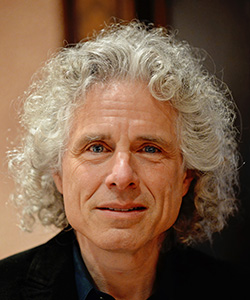-
Religion Past and Present
0:13 - How Religions Became Moral and Spiritual - Pascal R. Boyer, Washington University in St. Louis 15:17 - I'm Learning (,) God: Spirituality and Religion in African American Life - Jacqueline S. Mattis, University of Michigan 47:28 - Believers and Atheists: An Evolutionary Understanding of Individual Difference in Religiosity, Their Stability and Change - Vassilis Saroglou, Université catholique de Louvain 1:20:01 - Ritual, Community and Conflict - Harvey Whitehouse, Institute of Cognitive and Evolutionary Anthropology, University of Oxford 1:41:56 - Discussion
-
Understanding and Training Attention and the Conscious Mind
00:12 - Why Are You Not Paying Attention? Attention Capacity Limits, Individual Differences and Their Neural Basis - Nilli Lavie, University College London 24:12 - The Power of Consciousness: Hypnosis, Placebo, and Suggestion - Axel N. Cleeremans, Université Libre de Bruxelles 47:03 - Pushing the Limits of Cognitive and Neuroplasticity: Assessing a Six-Week Comprehensive Training Program - Jonathan W.
-

Inside the Psychologist’s Studio: Steven Pinker
Steven Pinker is widely regarded as one of the world’s most influential scientific scholars. His work has spanned visual cognition, children’s language development, the neural bases of words and grammar, and the psychology of
-
Inside the Psychologist’s Studio: Annette Karmiloff-Smith
Developmental psychology will become increasingly interdisciplinary, incorporating genetics, cell biology, the brain, the environment, and more, APS Board Member Annette Karmiloff-Smith projects in a just-released “Inside the Psychologist’s Studio” interview. Karmiloff-Smith, a highly influential developmental and cognitive neuroscientist, adds that she expects developmental researchers to devote increased attention to individual differences and environmental influences.
-
Inside the Psychologist’s Studio: Michael Posner
Michael I. Posner is a pioneer in the field of cognitive neuroscience, and was one of the first researchers to use then-emerging brain-imaging techniques to understand the brain processes underlying complex tasks. Posner studied the role of attention in tasks such as reading and number processing, and the development of attentional networks in infants and young children. He devised the Posner Cueing Task, which measures an individual's ability to shift attention. He received the highest scientific honor in the United States in 2009 when he was awarded the National Medal of Science.
-
Fostering Attention for Human Needs
Decades at the forefront of attention research have convinced APS William James Fellow Michael I. Posner that attention can literally save lives: He witnessed a group of smokers reduce their cigarette consumption by 60% after just 2 weeks of mindfulness training. He confirmed an increase in brain activity in areas related to self-control among these study participants. Posner’s Keynote Address kicked off the the 27th APS Annual Convention in New York City, where 5,300 attendees met to discuss cutting-edge research on behavioral development, attention, clinical interventions, and more.

